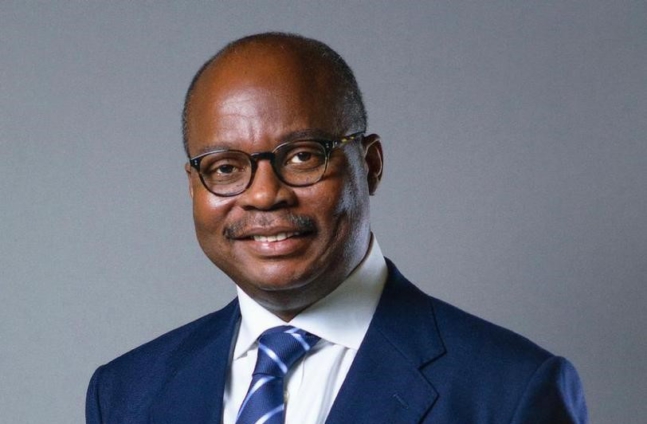The Governor of the Bank of Ghana, Dr. Ernest Addison, is optimistic that inflation rate will continue to trend downwards in the coming months.
According to him, the trend may continue if the country is not hit by external shocks.
He said the forecast is based on some measures implemented by the Monetary Policy Committee of the Bank of Ghana to check the rising inflation.
He spoke to Joy Business during the 2023 IMF/World Bank Spring Meetings in Washington DC in USA.
“Expect more surprises in the coming months when it comes to Ghana’s inflation rate”, he told Joy Business’ George Wiafe.
BoG and inflation rate dynamics
The Bank of Ghana has increased the policy rate by some 12.5 percentage points since March 2022, as part of measures to help check the rising inflation rate.
At a recent meeting by the Monetary Policy Committee, Dr. Addison noted that the Central Bank expects inflation to slow to 29% by the end of 2023.
He is hopeful the policy measures undertaken by the central bank would aid in the downward trend of inflation in the coming months.
Dr. Addison justified the recent hikes in the policy rates, but some business groups however expressed reservations about the hikes, warning it could lead to the high cost of borrowing.
Some analysts also blamed the high inflation on the policy rate hikes.
There are also some concerns that recent increases in taxes could be the reasons for the high inflation.
EIU and Policy Rate hikes
London Based, Economist Intelligence Unit (EIU) projected a 100 basis points increase in the policy rate at the next meeting of the Monetary Policy Committee.
This should result in the Bank of Ghana ending the year with a policy rate of 31.5%.
The Monetary Policy Committee at its last meeting ending March 2023 , increased the policy rate by 150 basis points to 29.5% in an effort to try and stem the soaring inflation pressures and the depreciation of the cedi against the US dollar.
The EIU said inflationary and currency pressures will remain elevated until at least mid-2023.
This, it said will be driven partly by the high global commodity prices and debt-restructuring uncertainties.
It added that stability will only return once debt-restructuring terms are agreed and the IMF's Executive Board approves the proposed $3 billion programme.
“We currently expect this in mid-2023, although downside risk loom large,” the EIU report said.
“We expect the policy-rate to reach 31.5% by end-2023, before being stable in 2024 as inflationary pressures eases”, the report added.
Latest Stories
-
Ghana requires $6bn to implement comprehensive flood control measures – Minister
41 minutes -
DDEP, not reforms, behind ratings boost – Economic Advisor Sharif Mahmud Khalid admits
53 minutes -
Fitch upgrade: We’re not rushing to re-enter external markets – Sharif Mahmud Khalid
1 hour -
‘No-bra, no-exam’ rule at Nigerian university sparks outrage
2 hours -
Spain’s government blames huge blackout on grid regulator and private firms
2 hours -
World’s only twice-a-year shot to prevent HIV could stop transmission – if people can get it
2 hours -
Mobile banker jailed 5 years for stealing GH¢70,840
3 hours -
ECG equipment thief jailed 5 years
3 hours -
Trader jailed 12 years for defiling minor
3 hours -
NPP 2026 Primaries: Bawumia doesn’t need favours, we’re ready – Miracles Aboagye
3 hours -
Police arrest school proprietor for preventing BECE candidates from writing exam
3 hours -
Two arraigned for alleged illegal gold trade
3 hours -
GWL uncovers illegal water connection at Adwoa Wangara apartment in Cantonments
4 hours -
Education Minister opens CIHRM 2025 conference
5 hours -
The Pulse & Vbyz Experience: A Galdem DJ Mixtape
5 hours

